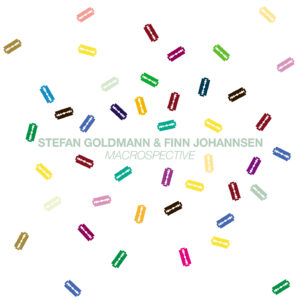After having interviewed Raoul Belmans, guest of the Popperola Party this Wednesday, I also wanted to hear out the other dj of that particular night. That is, as you know by now, Stefan Goldmann! Here’s the result…
Okay Stefan, 2011 seemed to be a busy and decisive year for you. You played more often, did a performance at the German Time Warp festival and played in Ibiza for the first time. Moreover, your output of last year already proved its importance. Lastly, the label Macro that you’re running with Finn Johannsen turned five; it released several very interesting records and found its place on the map of the industry and in the hearts of the fans. Now, I know you’ve always tried to manage your agenda, schedule and so on very conscientiously, so was this change of pace intended?
Stefan Goldmann: “Last year brought some quite exciting DJ gigs, which I’m really happy about. Besides that I changed a lot of things in terms of how I work. 2011 was the first year I didn’t want to release another single, but focus on new ideas and concepts instead. What seems to make sense now for my own music as well as for Macro is that we try to cut the time span between idea and implementation to the shortest possible. You know, in the past I’d often hesitate, like anyone probably, and be like “I’ll never get away with this” or “I’ll have to figure this out for a longer time”. Now it’s really just doing it. Some ideas seem so clear and simple when they come to mind that I’m astonished no one has implemented them so far. Sometimes it’s ‘in the air’ and you just have to do it and release it before others do, like planting a flag on a little South Pole. Being first is important and part of the fun in a way. I’ve tried to do this constantly and there’s a dynamic going with it that also brings up really interesting opportunities.”
An important event in 2011 was the release on Macro Recordings of unpublished work by your father Friedrich Goldmann, who was a composer of contemporary classical music. I thought of this as a courageous and difficult enterprise. I’m interested firstly in the preparatory stage: how did the idea evolve and how hard was the selection process? Did you for instance need to build in a certain distance because of the aspect that it was your dad’s music you were working with? And can you explain your choice to put the result out on Macro – because it is indeed partly your own label, but it doesn’t seem an obvious decision?
 SG: “For me music is a fairly subjective thing anyway. I’m as biased towards Elektro Guzzi’s as to Friedrich’s music. Then, the selection of works was fairly easy – Friedrich himself felt that the compositions he wrote in the last couple of years opened a new chapter and were strongly going to areas that the usual avant-garde contemporary stuff simply doesn’t cover. I too felt it is really important music that just wasn’t documented on any of the releases he had. Since one of the key problems of this kind of music is reaching people outside their core audience (and trust me, I know the CD sales numbers of some of the most sought-after and most often performed composers), releasing with a New Music label was not an option for these works. It would have stayed within professional circles and the outside world wouldn’t have noticed much.”
SG: “For me music is a fairly subjective thing anyway. I’m as biased towards Elektro Guzzi’s as to Friedrich’s music. Then, the selection of works was fairly easy – Friedrich himself felt that the compositions he wrote in the last couple of years opened a new chapter and were strongly going to areas that the usual avant-garde contemporary stuff simply doesn’t cover. I too felt it is really important music that just wasn’t documented on any of the releases he had. Since one of the key problems of this kind of music is reaching people outside their core audience (and trust me, I know the CD sales numbers of some of the most sought-after and most often performed composers), releasing with a New Music label was not an option for these works. It would have stayed within professional circles and the outside world wouldn’t have noticed much.”
“With Macro and especially the distribution of this CD as a subscribers’ special for The Wire magazine we reached a wider, more diversified and yet, as it turned out, pretty interested audience. You also don’t just get the usual musicologist’s feedback in the vein of “the pizzicati add up really nicely around bar 72”, but anything from drug associations to synaesthetic descriptions to whatever really. It was good to see this music is not just for analytics. Ex post it looks like a quite obvious decision to me. I’m quite happy how this one worked out.”
Also last year, you profiled yourself as a sharp music sociologist with several remarkable writings about the current state of affairs in the dance music scene. In some of your music there is a conceptual element in play where you also seem to tackle some of the typical tropes in dance, like for instance edits or beat patterns. This type of ‘institutional critique’ was and still is quite common in the field of visual arts but is rarer in music, though it exists – like in punk, most obviously. In effect, you are able to make a good dance track while bringing across meaning on a higher level, a remarkable quality. But tell me, what is the bigger idea or purpose of all this; can you elaborate a bit on that? And do you feel that your message is coming across so far?
SG: “The writing was aimed at addressing a few assumptions on how music works socially, how it gets noticed and what economy stands behind it. There is so much fog around this and it needed a voice saying something different from “spam as many mp3s as possible around and you will succeed”. Because people do just that and it never worked or it worked out differently from what they expected. I guess most musicians feel like being in a Kafka novel where things happen and you just can’t figure out why and how. That is a pretty intriguing situation that has not been discussed much in the context of music, so I wanted to investigate this a bit. Is that in the tradition of ‘institutional critique’? I never thought of anyone’s behavioural patterns as institutions, because it’s really just the sum of individual human reactions affecting a certain result. But certainly these adopt functions that institutions fulfil elsewhere.”
“Then again, the conceptual element seems like an anchor to me in an ocean of endless abundance of music. It adds a seemingly objective side to it, like adding some new coastline to the map. If I can’t show the difference of one piece of music over what we already have, I’d better scrap it because otherwise it’s just redundant. If there’s a conceptual difference on the other hand, that’s exciting – it shines. It radiates that energy you don’t get out of just another beat. Spotting a good concept is like finding that one gem in the middle of an enormous waste disposal site. With dance tracks, what I’d ideally like to hear is stuff that anyone in the room notices as being different, almost with an alien side to it – you and I don’t need to like it, just feel something is there.”
As said, Macro Recordings celebrated its fifth birthday a while ago. To put one of its basic premis es simply: it is about quality over quantity. The output has always been deliberately modest. But as five years have culminated in a double mix compilation (“Macrospective”) and as some of your artists have grown during that period along with the label, most notably Elektro Guzzi, is that moderateness at this point still a sustainable strategy? In what direction do you and Finn want the label to go in the future?
es simply: it is about quality over quantity. The output has always been deliberately modest. But as five years have culminated in a double mix compilation (“Macrospective”) and as some of your artists have grown during that period along with the label, most notably Elektro Guzzi, is that moderateness at this point still a sustainable strategy? In what direction do you and Finn want the label to go in the future?
SG: “To be honest, we wouldn’t be able to handle more output. It is really a matter of time, and quantity just costs time without adding anything significant. Of course we try to do what is right for the artists we work with and there is not really a time limit in this regard. Some labels plan their schedule in a way where they allocate certain months to certain artists. Like: “now it’s time for a new single by dj A”. We don’t do that. If one of our artists comes up with a project, we try to release it for the shortest time possible and in the moment when it makes most sense, not when it keeps the label catalogue looking smooth. Therefore we try to avoid planning ahead too much or cluttering our schedule with too many releases. Circumstances, artists, everything is changing – too much strategy doesn’t really help there.”
To finish: at this moment you are preparing a new album which will be the follow-up of your debut “The Transitory State/ Voices Of The Dead” (2008). How is that going so far? Since you received a lot of positive reviews and appreciation for that double debut, where have you put your standards now?
SG: “It is almost ready. Since it won’t be much like “The Transitory State”, it is hard to compare. It sounds different, and it comes with an idea, a limitation even, that bonds all the tracks together in it. The obvious thing is that the first one was kind of a compilation since all tracks on “The Transitory State” were also out as vinyl singles and EPs. So this is the first real dance and club album I’m doing.”
Thanks a lot, Stefan!





